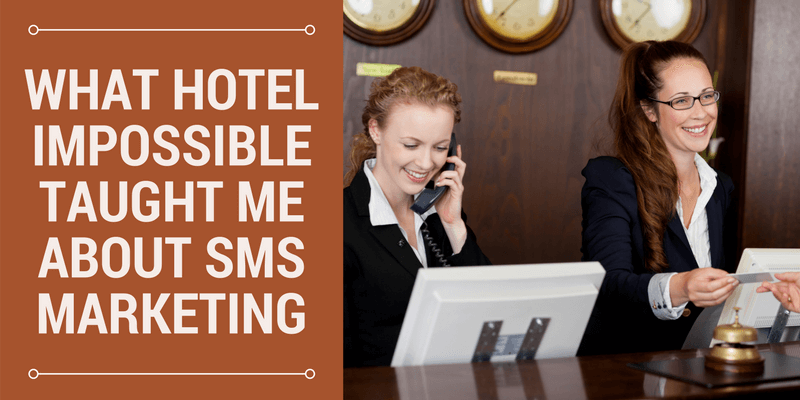5 Reasons SMS Marketing Matters Now More Than Ever

With the recent scandals surrounding the misuse of Facebook user data by Cambridge Analytica and numerous associated firms, suspicion amongst consumers in the UK and beyond has risen to a new high when it comes to advertising – especially when it comes to the social media sphere. With many consumers already sceptical about a lot of marketing, this is not good news for companies who need to get their brands in front of customers. With SMS Marketing already carrying a significantly higher level of trust than other channels, now is the ideal time to turn your brand’s attention to SMS Marketing. So just why is SMS Marketing different and what makes it stand out from the crowd? Ultimately, it is the personal and human touch that wins the day. Let’s take a closer look.
1. Privacy
One area that SMS is most definitely superior to other channels is the level of privacy it offers customers. Because UK and EU laws explicitly require customers to give their permission not just to receive SMS communications from a company (click here to learn more about PECR) but also the context in which messages can be sent, there is little scope for misuse of data. In addition to this, breaches of legislation are rigorously enforced, resulting in costly prosecutions that are highly damaging to the reputation of companies and their brands. The forthcoming GDPR legislation will strengthen this privacy and protection for consumers even more.
For these reasons, the vast majority of companies are extremely careful to ensure that their SMS Marketing campaigns are compliant – and the result of this is that customers not only regard the channel as trustworthy and reliable but even enjoy hearing from companies they have chosen to engage with.
This is supported by recent research conducted by the Direct Marketing Association (DMA), which reported that consumers rated SMS and email as their preferred channels when it comes to receiving a branded or business-based communication, well ahead of Facebook, app push notifications and Twitter. An incredible 98% of mobile users are happy to read a branded or business-based text communication, many of whom will go on to interact with the brand.
2. The personal touch
Whilst landline telephone numbers have historically been seen as public domain information and email addresses have been seen as insecure and often the target of spammers, consumers relationship with their mobile phone numbers is very different. People are very selective about who they will share their mobile phone number with and why they will share it.
The result of this is that in agreeing to provide their number for SMS marketing purposes, customers have also indicated a willingness for the company to use it for the declared purpose, without fear of having their information sold on and being spammed by numerous unknown parties.
This creates a superior level of trust and transparency that simply doesn’t exist in other channels.
3. First name terms
A few decades ago, advances in technology led to a seismic change in email marketing – the automated insertion of customer names into mass-marketing electronic mailshots. However, in its early days the new field often stood out from the rest of the email, appearing in a different font, size or colour or reading exactly as it was held in the system – often in the wrong order or with misplaced initials. It was obvious to consumers that there was no human element, and we quickly learnt to filter emails that claimed to be personal, with a significant percentage of mailshots being completely ignored. The other consequence of this is that even when genuinely personalised emails are sent by organisations, they are frequently treated with suspicion.
SMS is very different. Because we choose personally who we give our number to and only expect to receive communications from known parties, when we receive a message that contains our name, we have good reason to believe it is indeed intended for us and us alone. Effectively, we have already screened the sender. Because of this, the open and read rate for SMS messages is close to 100%, and that includes marketing communications.
4. The need to know factor
With data from social media, companies have (legitimately or not) access to a scarily large amount of data about our personal lives, interests, preferences, connections and more. As well as being used to market relevant and useful offers to a highly targeted audience, it can also be easily abused – as recent evidence illustrates – making consumers highly suspicious of advertisements that reach them via these channels.
When signing up to a company’s SMS Marketing mailing list, there is no reason for the customer to offer up any more information about themselves than is absolutely necessary. As a result, customers don’t feel that they are exposing themselves and those they associate with in the same way. As with other aspects of SMS Marketing, this need to know approach helps to reinforce the element of trust and transparency.
5. Delete means delete
The problem with personal data in the internet world is that delete rarely, in reality, means delete. Long after our personal profiles and data have supposedly been removed from public view, it can still often be accessed by certain parties. Simply clicking hide or delete on a screen gives the user little certainty that the data will indeed be deleted – and this can make customers increasingly reluctant to provide their personal details to social media networks, which in turn limits the potential effectiveness of these channels for marketing.
With SMS Marketing, the same barrier simply does not exist. Most users are confident that when it comes to data on their mobile device, delete really does mean delete. This sense of control also extends to SMS Marketing mailing lists, with users confident that if they opt out of communications their wishes will be recognised and their details deleted. This feeling that delete really does mean delete is a powerful factor in increasing participation in SMS Marketing.
Ready to give SMS Marketing a try? Call the experts here at Fastsms now on 0800 954 5305 and we’ll have you up and running in seconds.
Related Articles
Avoiding Fraud on Mobile Coupons in Your SMS Marketing
SMS coupons have redemption rates ten times email coupons. Averages run around 30%, but they could be as high as 45% for personalised messages. Even with those great numbers, retailers can still lose money to fraud. Find out how make sure customers only redeem your coupon once.
Five Things Every Marketer Needs to Know About SMS
There's no better time to take a closer look at SMS marketing - could it fit your marketing strategy? What should be at the forefront of your mind when you look at whether SMS could fit with your business? Here we've highlighted five things you should know before getting started.
5 Top Converting Power Words for SMS Marketing
What Hotel Impossible Taught Me about SMS Marketing
In Hotel Impossible, Anthony Melchiorri saves struggling hotels. It turns out some of the advice he gives them could make you a lot more money. It’s all about marketing and knowing where to get the best ROI. Read the blog to see if you’re spending in the right places.
Growing Your Business with SMS Messaging
Should You Use an App or SMS Messaging? Or both?
It's an app world out there. The average mobile owner has about 40 apps installed at any one time. But they usually use approximately 15 regularly. Personally, that's about right. Though I would bet I've had many more than 40 apps before, but I get around to deleting some eventually.
10 Super Successful SMS Marketing Phrases
The most effective mobile marketing example messages
Can You Use SMS for “Cold Calling”?
Does the thought of cold calling fill you with dread? You might think it would be easier to use SMS messaging instead. And though it’s legal to do so in some circumstances, you might want to rethink using it that way. Read the full blog to find out why.












